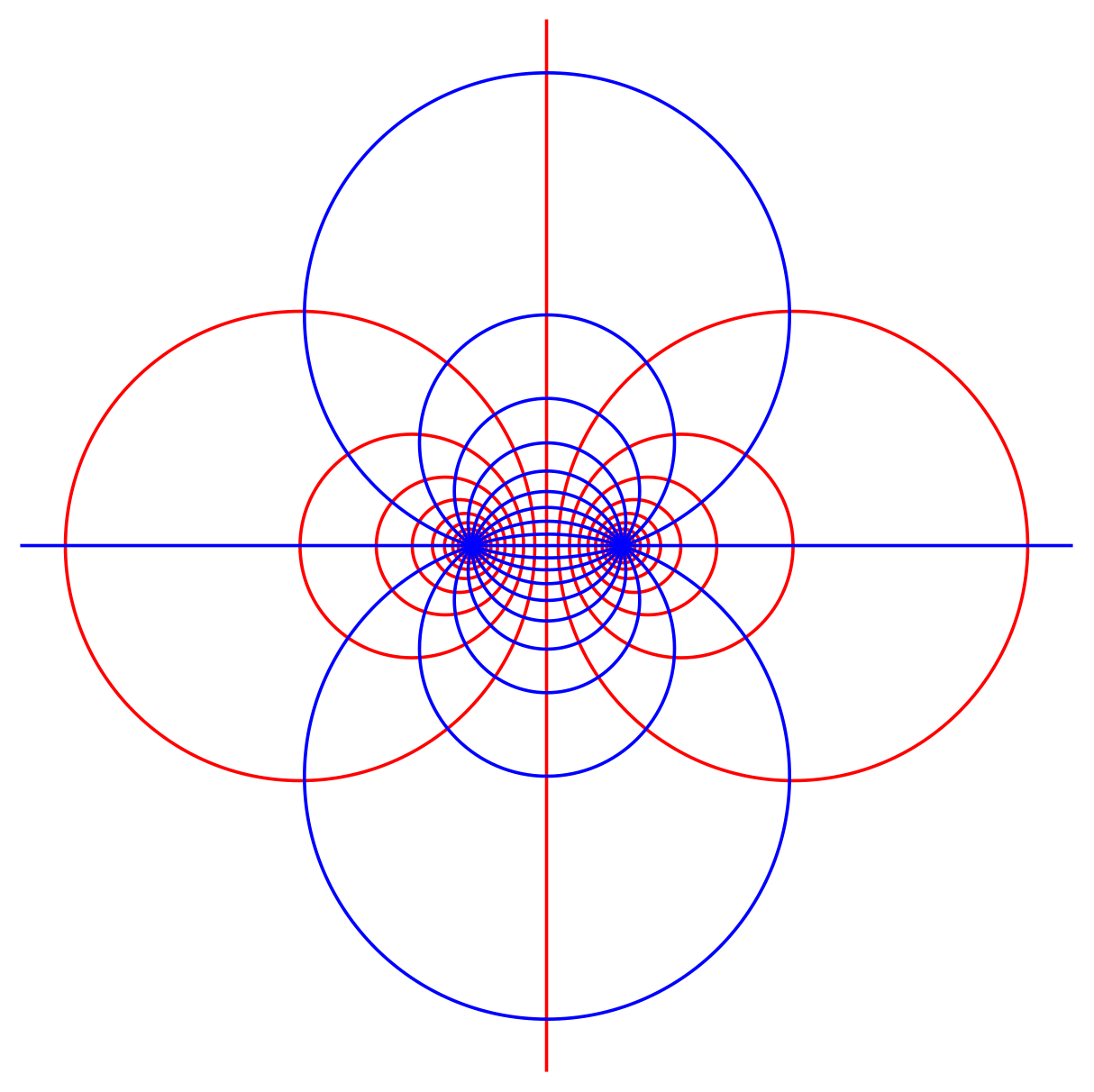

| Instructor | Dr. Mark Comerford |
| Office | Lippitt 102 F |
| Phone | 874 5984 |
| mcomerford@math.uri.edu | |
| Office Hours |
Wed 2 - 4 pm or by appointment |
| Text | Stephen D. Fisher Complex Variables (Second Edition), ISBN 0-486-40679-2 |
| Prerequisites | MTH 243 or equivalent |
Lectures and Homework Problems
| Section | Problems |
| 1.1 Complex Numbers and the Complex Plane | 1f, 3d, 5d, 6f, 11, 13b |
| 1.2 Some Geometry | 2, 3, 5, 13, 15, 25, 28 |
| 1.3 Subsets of the Plane | 1 - 8 |
| 1.4 Functions and Limits | 1, 3, 5, 7, 11, 13, 15, 17, 21, 31, 34, 39 |
| 1.5 The Exponential, Logarithm and Trigonometric Functions |
1, 4, 5, 6, 11, 13, 15, 19, 27 |
| 1.6 Line Integrals and Green's Theorem |
1, 3, 5, 7, 8, 10, 11, 12 |
| 2.1 Analytic and Harmonic
Functions, Cauchy-Riemann Equations |
1a, 1g, 3, 5, 7, 9, 14, 18, 20a, 20c , 21 |
| 2.2 Power Series | 1- 5, 7 - 11, 15, 16, 22a, 22b |
| 2.3 Cauchy's Theorem | 1, 3, 4, 7, 10, 14, 15 |
| 2.4 Consequences of Cauchy's Theorem |
1, 2, 4, 6, 9, 10, 12, 14, 17, 20 |
| 2.5 Isolated Singularities | 1, 2, 5, 6, 7, 8, 10, 12, 16, 22a, 22b, 22c |
| 2.6 The Residue Theorem and Applications | 1, 2, 4, 5, 9, 10, 16, 17, 20, 22 |
| 3.1 Zeroes of an Analytic Function | |
| 3.2 Maximum Modulus and Mean Value | |
| 3.3 Linear Fractional Transformations | |
| 3.4 Conformal Mappings |
Exams
| Midterm | 2-3:15pm, Tuesday October 18 Lippitt 205 |
| Final | TBA Lippitt 205 |
Evaluation
| Quizzes | 20% |
| Projects | 20% |
| Midterm | 25% |
| Final | 35% |
Course Description
This course is an introduction to the wonderful world of complex variables and complex analysis. No initial knowledge of complex numbers is needed, however, some multivariable calculus is required and so Math 243 is a prerequisite. We will cover the material in the book until the residue theorem and its applications, especially its usefulness in doing certain types of real integrals (what physicists and engineers refer to as contour integration).
The emphasis will be mostly on developing the techniques of complex variables such as manipulating power series and working with integrals over paths in the complex plane. As much as possible, we will look at the visual side of the subject, as a working knowledge of elementary complex analysis can lead to many beautiful pictures, not least the fractal sets of complex dynamics such as the famous Mandelbrot set. With this in mind, there will be a project towards the end of the semseter, worth twenty percent of the overall grade. Some of these projects will be visual in nature and will involve using software such as Mathematica or Maple. Others will involve reading and presenting topics somewhat more advanced than those covered in class.
In addition to the project, there will be one midterm (provisional date Tuesday October 18), a final and bi-weekly quizzes. The material covered in the quizzes will be strongly based on the assigned homework with the expectation that the problems should be relatively straightforward for students who have mastered the last two week's homework problems.
Projects
Project 2: Hyperbolic Tessellations
Project 5: Complex Mappings and Spirograph Patterns
Project 6: The Riemann Mapping Theorem
Goals and Objectives
The goals of the course are to have you develop the basic skills presented in one semester of complex variables. At the conclusion of
this semester you
should be able to:
Special Accommodations
Students who need special accomodations and who have documentation from Disability Services should make arrangements with me as soon as possible. Students should conact Disability Services for Students, Office of Student Life, 330 Memorial Union, 874-2098.